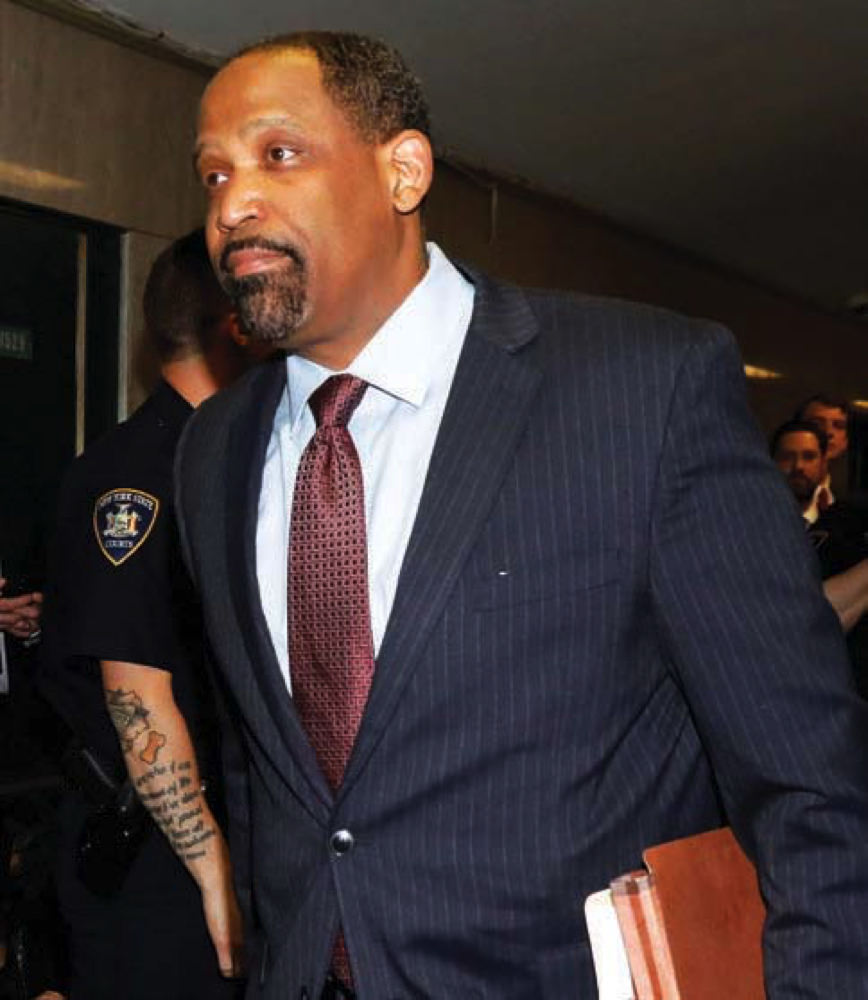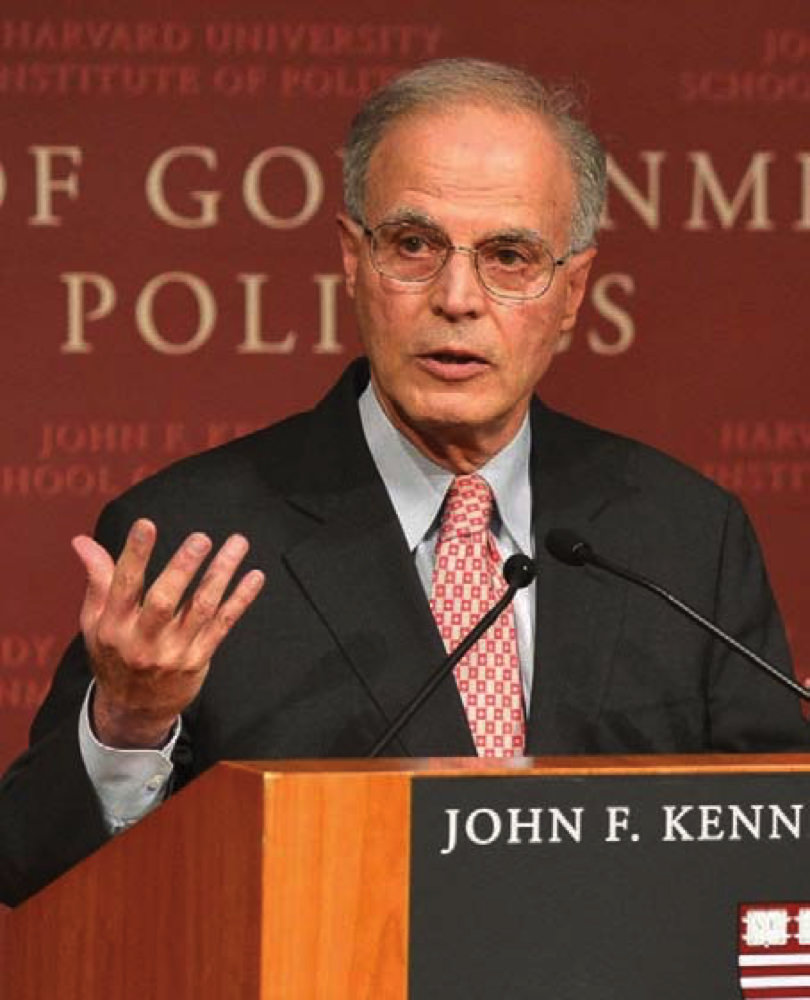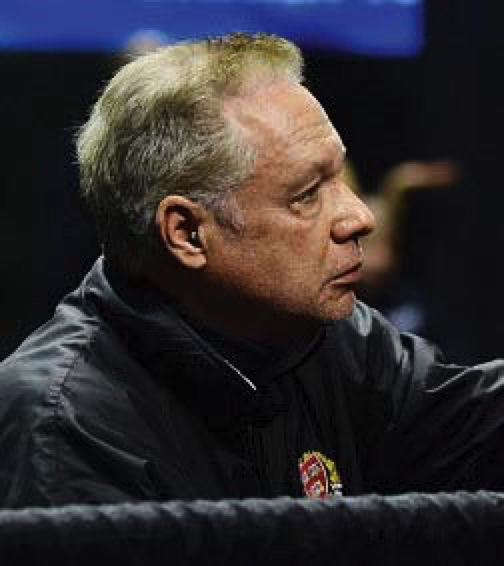Faculty-Dean Denouement
During the Faculty of Arts and Sciences (FAS) meeting on May 7, President Lawrence S. Bacow was asked his views on the turmoil at Winthrop House, where student protesters had loudly sought the ouster of their faculty deans, Ronald S. Sullivan Jr. (who had decided to represent movie producer Harvey Weinstein in the criminal proceedings concerning his alleged sexual assaults and harassment involving many women) and Stephanie R. Robinson. Bacow said he would respect the “locus of authority” responsible for making such decisions: in this case, the deans of Harvard College and of FAS.

Ronald S. Sullivan
Photograph by Richard Drew/AP Images
Those authorities made their decision known on May 11, when College dean Rakesh Khurana advised the Winthrop community that the faculty deans “will not be continuing” in that role after their current term ends on June 30, 2019.
Having previously initiated a review of the “climate” within the House—a review Sullivan was quoted as calling racially biased (see “Coming to Terms with Sexual Harassment,” May-June, page 22)—Khurana wrote that his decision to end the faculty deans’ service “was informed by a number of considerations. Over the last few weeks, students and staff have continued to communicate concerns about the climate in Winthrop House to the College. The concerns expressed have been serious and numerous. The actions that have been taken to improve the climate have been ineffective, and the noticeable lack of faculty dean presence during critical moments has further deteriorated the climate in the House. I have concluded that the situation in the House is untenable.”
The decision was difficult, he continued, because “I have long admired your faculty deans’ commitment to justice and civic engagement, as well as the good work they have done in support of diversity in their House community. I know that some of you are also proud of these efforts. I also know that some of you have been greatly helped and supported by your faculty deans in difficult situations. This decision in no way lessens my gratitude to them for their contributions to the College.”
Khurana and FAS dean Claudine Gay then met with students in the Winthrop dining hall at midday to discuss the decision, answer questions, and point toward House leadership during the forthcoming period of transition.
Separately, the day before, Sullivan advised the court that he was stepping down as Weinstein’s counsel, because the trial date, rescheduled for September, conflicts with his teaching obligations. He and Robinson remain at Harvard Law School as Climenko clinical professor of law and lecturer on law, respectively.
Domínguez Banned from Campus
Jorge Domínguez—formerly Madero professor for the study of Mexico and Harvard’s initial vice provost for international affairs—who retired last year after being accused of persistent sexual harassment, has now been stripped of his emeritus status and the privileges associated with it. FAS dean Gay informed the community on May 9 that Harvard’s Title IX investigation into the case, conducted by the Office for Dispute Resolution (ODR), found that Domínguez “engaged in unwelcome sexual conduct toward several individuals, on multiple occasions over a period spanning nearly four decades.”
Under the sanctions she imposed, Domínguez will be disinvited from the FAS campus, and from all FAS-sponsored activities on and off campus. At her request, the University has also disinvited him from the Harvard campus and Harvard-sponsored events. The sanctions mean that Domínguez won’t be allowed to teach classes, have research assistants, access Harvard’s libraries, or have office space and other privileges provided to emeritus professors.

Jorge Domínguez
Photograph by Paul Marotta/Getty Images
“The ODR findings reveal a longstanding pattern of behavior that, at several points, violated policies designed to ensure a safe and non-discriminatory educational and work environment,” Gay wrote. “I am appalled by the report’s findings and heartbroken for those who had to endure the behaviors described.”
Now that the University’s investigation has concluded, President Bacow will initiate an external review of how Harvard’s institutional culture may have prevented people who experience sexual harassment from reporting it, and whether there are barriers to responding effectively to misconduct. It will also examine how faculty promotion decisions can be made with due consideration of reports or allegations of misconduct.
Read a full report here.
Financing the Fencing Coach?
Harvard avoided the taint of the “Varsity Blues” admissions scandal disclosed on March 12—the payments to have students’ standardized tests altered or taken by others, the six- and seven-figure bribes to coaches to designate (nonathletic) applicants as athletic recruits—that swept in institutions such as the University of Southern California, Georgetown, and Yale. But in early April, The Boston Globe reported that Peter Brand, Harvard’s varsity fencing coach since 1999, had engaged in real-estate and nonprofit financial transactions with the parent of a current and a former student.

Peter Brand
Photograph by Jason Miller/NCAA Photos via Getty Images
He reportedly sold his home for more than $400,000 above its assessed value, and then quickly purchased a Cambridge condominium for more than $300,000 above its asking price. The purchaser of Brand’s home, Jie Zhao, a Maryland businessman, the parent of a then-fencing recruit, subsequently sold it for a loss of more than $300,000.
Claudine Gay, who as FAS dean oversees Harvard’s athletics program, issued a statement about the allegations against Brand. In a letter to the community, she wrote, “We are now moving quickly to learn more about these claims through an independent review”—which at a minimum would appear to bear on the University’s policies dealing with conflicts of interest.
The investigation was continuing as this issue went to press; for links to the underlying news, see here.
Undergraduate Education Alterations
Concluding much academic business on May 7 at its last regular meeting of the year, the Faculty of Arts and Sciences enacted two significant pieces of legislation affecting undergraduate learning.
After considering the pros and cons of the “shopping week” that begins each semester—enabling undergraduates to sample and choose classes that really appeal to them, and perhaps make important intellectual discoveries; but making it very difficult in some cases to match enrollment with graduate teaching fellows, or even suitable teaching spaces—the faculty voted to retain the current system for three more years. But in the interim, a new faculty committee will attempt to determine whether incremental improvements can be effected. Among them are algorithms and other tools to attempt to predict enrollments better; a common way of handling lotteries for enrollment-limited courses; and, once the graduate-student union contract is settled, taking into account the new terms for employing them as teaching fellows.
In the meantime, the committee will prepare an alternate system, perhaps for some sort of preregistration with an “add/drop” period, so that when the faculty next deliberates, it can compare the current system, as incrementally improved, with some other vision of how to effect enrollment each semester—and choose how to proceed. Read about the background (with links to prior reporting).
Over the strongly held objections of some mathematics professors, who felt that a commitment to instruction in mathematical reasoning and formal logic was being booted out of the curriculum without substantive debate (see here for details), the faculty also legislated the final element of the revised General Education curriculum, which debuts in the fall term. It is the Quantitative Reasoning with Data requirement, to be fulfilled not with purpose-built courses like the rest of Gen Ed, but rather through completion of one of a designated range of courses—deemed to contain sufficient content on “mathematical, statistical, and computational methods”—that will enable the young learners “to think critically about data as it is employed in fields of inquiry” across the FAS. It is, in effect, a fourth distribution requirement (along with the broad, divisional ones in arts and humanities, social sciences, and science and engineering), albeit somewhat more narrowly constrained (for an overview, read here). The dissenting mathematicians did secure an amendment to review the new requirement (its “goals, rationale, and scope within the wider context of the College’s curriculum”) during the 2022-2023 academic year.
And with that, the revised Gen Ed proceeds to the reality test—enrolling students—come summer’s end.
Supporting Public Service
During his inaugural address last October, President Bacow advanced one programmatic proposal: “It is my hope that every Harvard graduate, in every profession, should be an active, enlightened, and engaged citizen. So I am pleased to announce today we will work toward raising the resources so we can guarantee every undergraduate who wants one a public-service internship of some kind….” During the April 27-29 Visitas weekend for students admitted to the class of 2023, College dean Rakesh Khurana unveiled a down payment toward that aspiration, an initiative called the “Service Starts with Summer Program” (3SP).
Its idea is to habituate students to public service before they matriculate, building on activities many of them may have already pursued while in secondary school, and to introduce them to Harvard’s many public-service resources as early as possible. The initiative invites each student to perform public service in her or his hometown this summer, with up to 100 applicants eligible for a $1,500 stipend for completing 100 hours of service. During the summer, they will be in contact with faculty and public-service staff members through webinars, and with Harvard student peers and fellows through summer work. The whole class will then be invited to participate in a pre-orientation day of service in Cambridge, Somerville, or Boston.
Khurana said, “We were inspired by President Bacow’s call for a public-service role for the University,” and sought ways to “infuse our mission” of educating students through transformative experiences “that will prepare them for a life of service and leadership”—in this case, “right from the start” of their undergraduate years.








